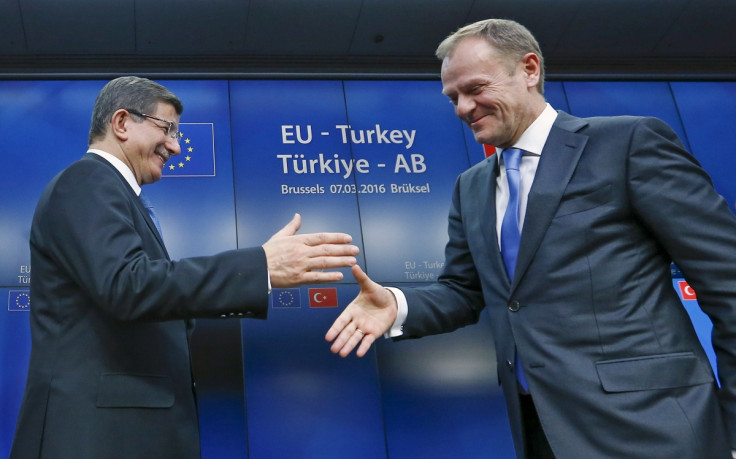Legality of deal struck between the EU and Turkey over refugees questioned

A senior United Nations official has questioned the legality of the recent deal struck between the European Union and Turkey in keeping refugees away from the bloc. The deal is not only contrary to international law but also puts the refugees at risk of being sent back to a war zone.
The EU and Turkey have agreed to a deal which will see the bloc resettling one Syrian refugee for every asylum seeker returned to Ankara from the Greek islands. The deal however includes a €3bn (£2.3bn; $3.3bn) payment to Ankara.
Filippo Grandi, the UN high commissioner for refugees said: "As a first reaction I am deeply concerned about any arrangement that would involve the blanket return of anyone from one country to another, without spelling out the refugee protection safeguards under international law." Speaking to the European Parliament in Strasbourg on 8 March, he said that asylum seekers should only be returned to other states if there was a guarantee that they would not be sent back to the place they had fled from.
The country of return also had to ensure that the asylum seekers had access to work, healthcare, education and social assistance. Grandi also reminded the EU that the Syrian conflict was entering its sixth year and that Syrian refugees were facing increasingly difficult conditions in Jordan and Lebanon.
He said 90% of these refugees were living below the poverty line as they were unable to work and had run down all their savings. Grandi also noted that Afghans, who many European states do not deem to have legitimate asylum claims, also had urgent protection needs.
Vincent Cochetel, the UN's regional co-ordinator for the refugee crisis in Europe said: "An agreement that would be tantamount to a blanket return of any foreigners to a third country is not consistent with European law."
Amnesty International was not a supporter of the deal either. It said the plan was "wrought with moral and legal flaws. According to Amnesty's Iverna McGowan, the EU and Turkish leaders "have sunk to a new low, effectively horse-trading away the rights and dignity of some of the world's most vulnerable people."
The EU however believes that legal issues pertaining to the deal will be covered by declaring Turkey a safe third country" for return. According to Jean-Claude Juncker, the President of the European Commission, countries could refuse to consider refugee claims if there was a safe place to send them back to. As Greece had decided Turkey was "a safe country", he said, the returns policy was legal.
Amnesty International however is not convinced, questioning the whole concept of "safe third country." Further, Turkey is not a full member of the Geneva Convention which raises more legal issues.
© Copyright IBTimes 2025. All rights reserved.






















